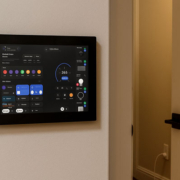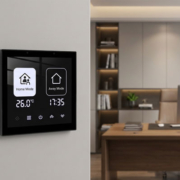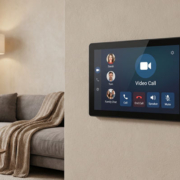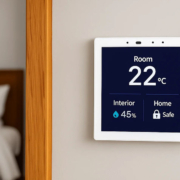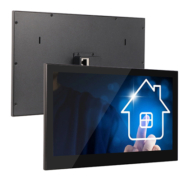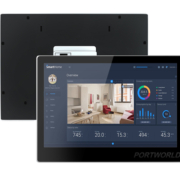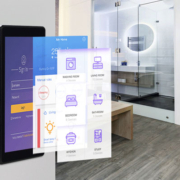RK3566 Mainboard PCBA Assembly Process Explained: From SMT to Final Testing
The RK3566 processor by Rockchip is a powerful, cost-effective quad-core ARM Cortex-A55 chip widely used in smart home control panels, industrial tablets, AIoT devices, and embedded systems. To bring an RK3566-based mainboard to life, precise and efficient PCBA (Printed Circuit Board Assembly) is essential. This article explores the end-to-end PCBA assembly process for RK3566 and RK3568 mainboards, highlighting key technical steps, best practices, and how OEM/ODM businesses can optimize for cost, quality, and performance.
1. Understanding the RK3566 and RK3568 Mainboards
RK3566 and RK3568 are system-on-chips (SoCs) designed for embedded computing. While RK3566 supports moderate multimedia and computing tasks, RK3568 offers additional interfaces, higher performance, and enhanced I/O support—making them both ideal for custom mainboards used in smart control panels and industrial solutions.
Key Features:
- Quad-core Cortex-A55 CPU
- Integrated GPU (Mali-G52)
- Support for eMMC, SPI NOR/NAND, and SDIO
- LVDS/MIPI/HDMI video output
- Rich peripheral support (USB, Ethernet, PCIe, CAN, etc.)
2. PCBA Assembly Workflow for RK3566/RK3568 Mainboards
Step 1: PCB Design & DFM Review
Before assembly, a Design for Manufacturability (DFM) check ensures the PCB layout is optimized for SMT. Key areas include:
- BGA pad design for RK3566 SoC
- Power trace routing for PMIC
- High-speed signal integrity for DDR and HDMI
Step 2: SMT (Surface Mount Technology) Assembly
- RK3566 SoC and memory chips (LPDDR4, eMMC) are usually packaged in BGA (Ball Grid Array), requiring precise SMT reflow.
- A high-quality stencil and accurate pick-and-place machine are critical to avoid solder bridges or cold joints.
Step 3: AOI and X-Ray Inspection
- AOI (Automated Optical Inspection) checks component alignment, solder quality, and orientation.
- X-ray inspection is mandatory for BGA packages like the RK3566 chip, verifying hidden solder ball quality.
Step 4: Through-Hole & Manual Soldering
-
For components like DC jacks, CAN connectors, or Ethernet transformers, manual soldering or wave soldering is used.
Step 5: Firmware Burning & Functional Testing
- The bootloader and Linux/Android OS are flashed into eMMC or SPI NOR.
- A full functional test (FCT) is conducted, checking USB ports, HDMI output, network connectivity, and GPIOs.
Step 6: Aging & Reliability Testing (Optional)
-
Some industrial-grade solutions require burn-in tests at high temperatures or voltage cycling to ensure long-term stability.
3. Tips for High-Yield RK3566/RK3568 PCBA Production
- Use High-Precision Reflow Ovens to maintain temperature curves for BGA soldering.
- Choose IPC Class 2 or 3 PCB Standards for better durability.
- Optimize BOM for Availability: Use mainstream components to reduce lead times.
- Validate DDR Routing Layouts carefully to ensure boot stability.
4. Why Choose Portworld for RK3566/RK3568 PCBA Solutions
At Portworld, we specialize in custom embedded mainboard assembly using Rockchip SoCs like RK3566 and RK3568. Our advantages include:
- ✅ Full PCBA Service: From schematic design to mass production.
- ✅ BSP and Software Support: We offer Linux/Android SDK integration and tuning.
- ✅ PoE, RS485, CAN Bus Ready Designs for smart control panel applications.
- ✅ SMT and X-Ray In-house Capability: Ensuring precision for BGA components.
- ✅ CKD/SKD Options Available: Lower tariff burden and better logistics control.
Whether you’re building a 4-inch or 5-inch smart home control panel or an industrial touch terminal, Portworld can help accelerate your time-to-market with a reliable and scalable PCBA solution.
RK3566 and RK3568-based mainboards are at the core of many modern embedded systems. Ensuring high-quality PCBA assembly—from design and SMT to final testing—is critical for performance, reliability, and long-term success. Choosing an experienced partner like Portworld helps you unlock the full potential of Rockchip solutions, reduce costs, and ensure seamless integration into your smart device ecosystem.

